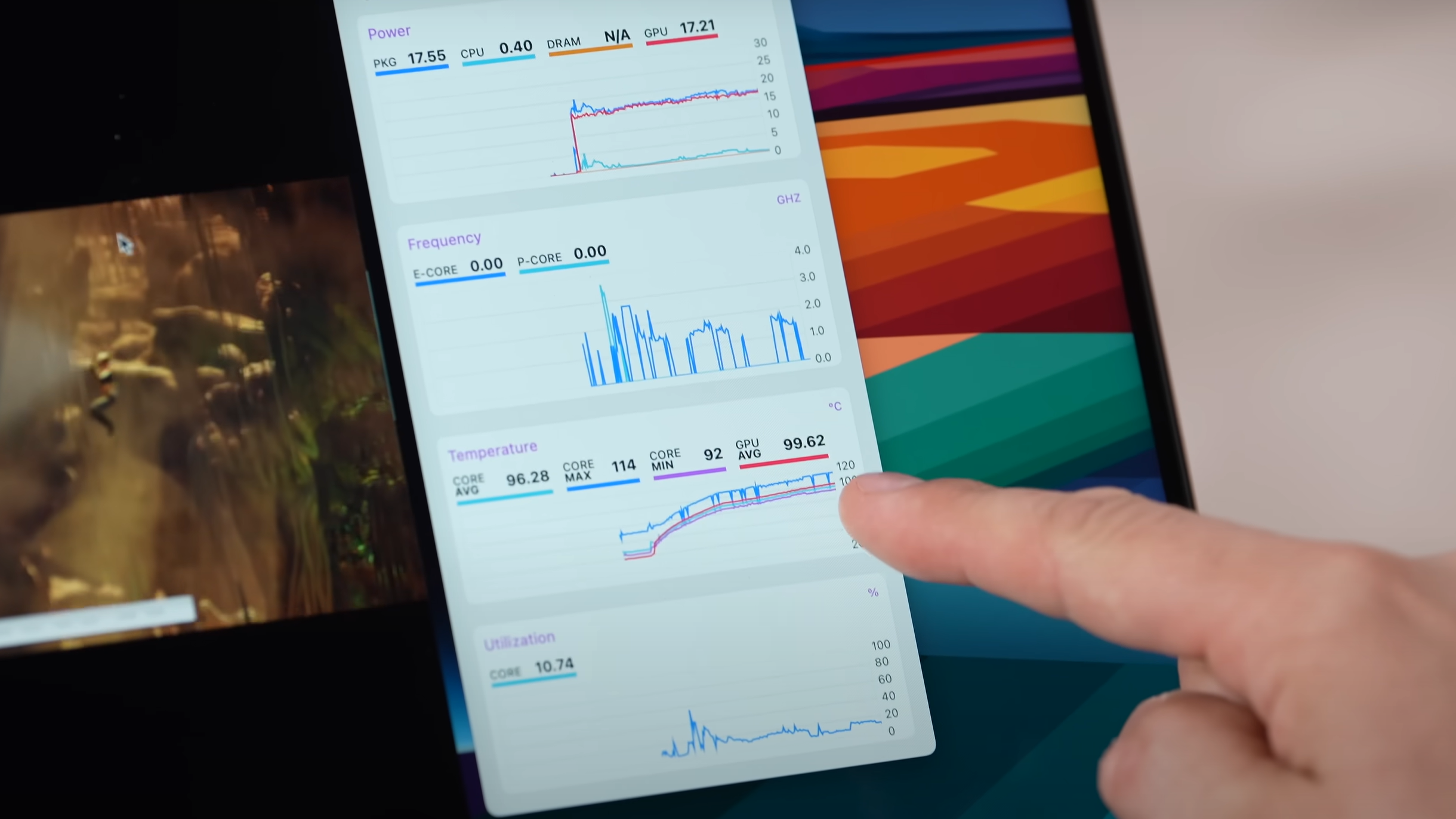
The M3 MacBook Air can hit up to 114 degrees Celsius on its hottest core, according to testing from Max Tech. While modern processors, whether they’re in laptops or desktops, are designed to run pretty hot, the M3 MacBook Air surprised with its peak temperature of 114 degrees Celsius. Stress testing shows that temperatures eventually fall to roughly 100 degrees Celsius but at the cost of performance.
The newest version of the MacBook Air launched this week with the latest M3 chip. Since the M1-powered MacBook Air, the lightweight Apple laptop has used no active cooling and relies on passive cooling through the heatsink and chassis to achieve silent operation. Naturally, this forces the MacBook Air’s processor to operate at a higher temperature, and the M3 model is no different.
However, the degree to which the M3 MacBook Air gets hot is surprising. Max Tech took his 15-inch model out for a spin in 3DMark Wild Life Extreme and Cinebench 2024 and saw the hottest core inside the M3 hit 114 degrees Celsius multiple times. Under load, the average CPU and GPU temperature can peak at 107 and 103 degrees, respectively. This resulted in the chassis hitting 46 degrees Celsius or 115 degrees Fahrenheit at its hottest point.
The M2 MacBook Air had similar heat issues under load, though it’s unclear if any were getting as hot as 114 degrees. Back then, Max Tech suggested placing thermal pads on the inside of the MacBook Air to facilitate better thermal transfer, which may also work for the M3 model.
This heat is unsustainable for a processor to maintain safely, so the M3 gradually lowered its frequency and power consumption throughout the stress tests. This allowed the chip to settle in at around 100 degrees, which is still hot but is still considered safe by the industry.
Of course, this means performance declines too; in our own M3 MacBook Air review, we saw the 15-inch model’s performance in Cinebench R23 by about 10% and the 13-inch by 20% from the first run to the 20th. Graphics performance can also decline substantially per Max Tech’s results from 3DMark Wild Life Extreme, which saw a 27% decline from the 15-inch MacBook Air’s best to worst results.
Though the M3 MacBook Air does certainly overheat and hits an incredibly high temperature, it’s not clear if that’s a significant issue. The MacBook Air has never been a high-performance device, even with a fan, so it sees a performance drop throughout an intensive workload, which is unsurprising. Additionally, its lifespan should be acceptable if a processor isn’t constantly running at a high temperature. To sustain performance over a long period, you’ll want the MacBook Pro.







